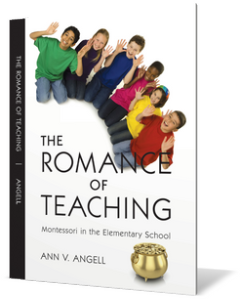Is Reflection A Luxury Good?
Enjoyed only by the leisure class? Reports suggest that time spent reading books increases with wealth. Do only rich people have time to read and think?
In a recent NY Times piece (Sunday Review, 6/15/2014), Maria Konnikova admits that, like most of us, she often feels she is working against the clock, her time squeezed between obligations and responsibilities. She admits this state of mind is an unpleasant inconvenience but suggests comparing our experience with the lives of the poor. We know they lack financial resources. They are also short on time because they are always trying to keep up with the daily demands of staying alive or providing for their families, finding goods and services, making arrangements to survive. Beyond that, however, they also live with a third deficit which she calls “thinking bandwidth,” the time to reflect on their circumstances, their present lives, and possible futures. She concludes that “reflection is a luxury good.”
Perhaps we impoverish our lives when we don’t reserve time to reflect on daily experience. The obstacles are commonplace addictions–TV, web-surfing, electronic quipping, even personal “to do” lists. We fill our days with mental as well as physical obligations that give us no time left over. Are we doing this on purpose? Or perhaps we never learned the skills required for rich reflection?
When I was working with preservice teachers at the University of Houston, one of the powerful ideas in vogue was the teacher as a “reflective practitioner.” Always eager to find connections between mainstream thinking and Montessori theory, I promoted observation as an essential teaching behavior. Taking careful notes while observing students, I told them, would provide rich material for deep reflection. Faced with the multiple demands of teaching careers, however, they would only succeed with determination and disciplined personal practice.
If we want to teach our students how to reflect, we would be wise to offer them opportunities to practice. For several years in her 9-12 class at Arbor Montessori in Atlanta, Betty Litsey’s students started the day with reflective writing which she called “the morning papers.” She reported that most students wrote for at least half an hour before going on to other work, but some continued to write on for an extended period of time. Whenever I observed the 6-9 class taught by Nikki Torres at First Montessori (also in Atlanta), I was always impressed with the many children engaged so thoughtfully in writing. What motivated them? Nikki explained that once a week the group convened for an “Author’s Corner” where anyone could share what they had written. The sharing prompted rich conversations about both the content and the writing process. In my classrooms, I have tried to encourage reflective writing at the end of the school day by making a quiet time for students to record their private thoughts—in words or drawings, when words failed.
I always enjoy conversations with parents about the goals they have for their children. Especially in group discussions the lists they make are full of character traits rather than academic success. They hope their children will be honest, interested, able to persevere, independent thinkers, helpful and grateful and self-respecting. However, on one occasion, a parent told me she was withdrawing her fourth grader after a year in my class because she wasn’t seeing the kind of progress that would ultimately assure her daughter a pool in the backyard. I guess she had “luxury goods” in mind, but today I am thinking that “reflection” should have been at the top of her list.

Upon reflection, perhaps my absorption in personal and professional “to-do” lists can be seen as a distraction. This is something I never thought about before. (That, and trying to get all the things ticked off, no matter how small.) Thanks, Ann!